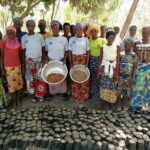


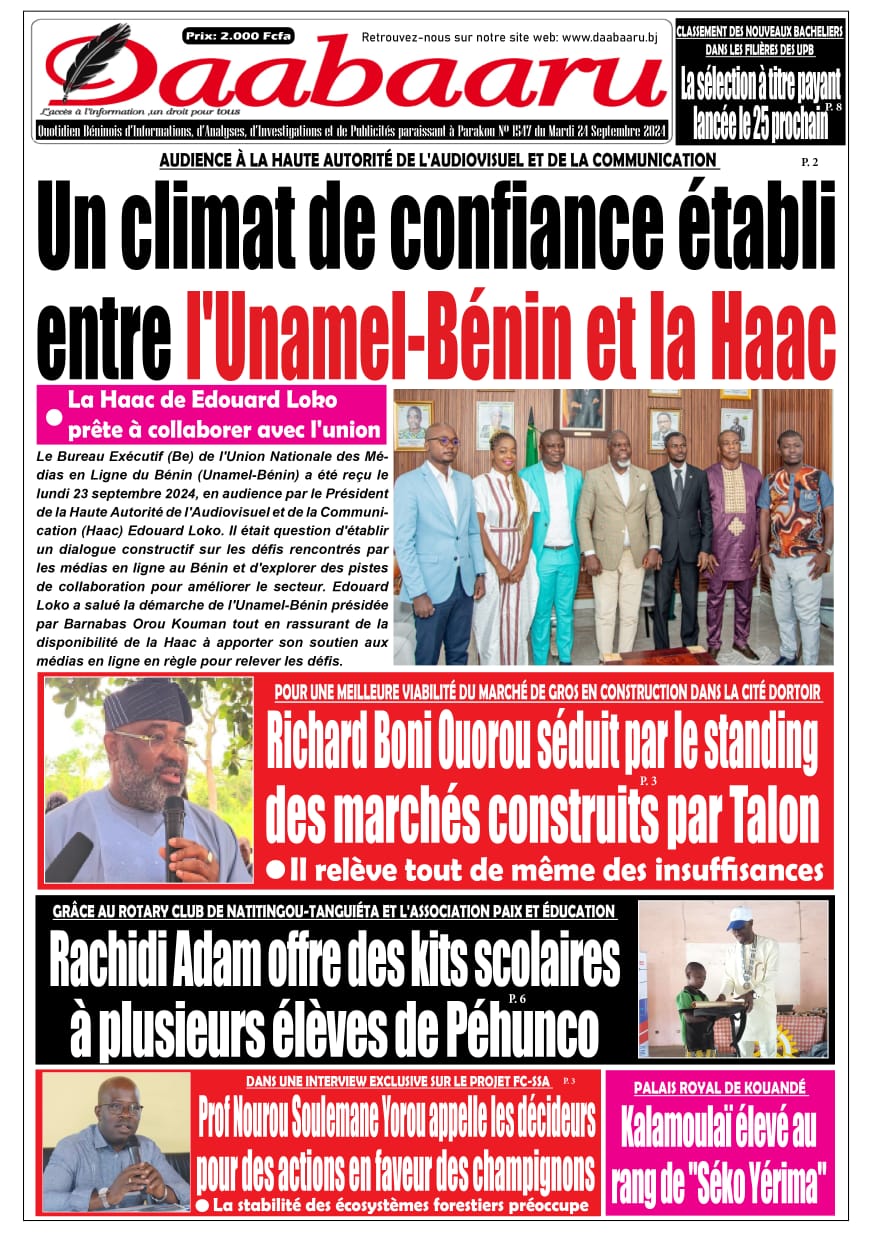
Mushrooms are crucial for the stability of forest ecosystems and play a vital role in the well-being of communities. However, they are often overlooked in conservation efforts. This is the driving force behind the FC-SSA project, which aims to provide data on mushrooms and offer policy recommendations to ensure their inclusion in conservation strategies, as mandated by the Convention on Biological Diversity (CBD). The project also aims to raise awareness about habitat conservation across sub-Saharan Africa. It operates in Birni, Perma, and Koutouponga in northern Benin, as well as in Zimbabwe. In an exclusive interview with Daabaaru Newspaper, the project Leader, Prof. Yorou stressed the importance of preserving mushrooms and called on policymakers to explicitly integrate them into environmental management and protection plan
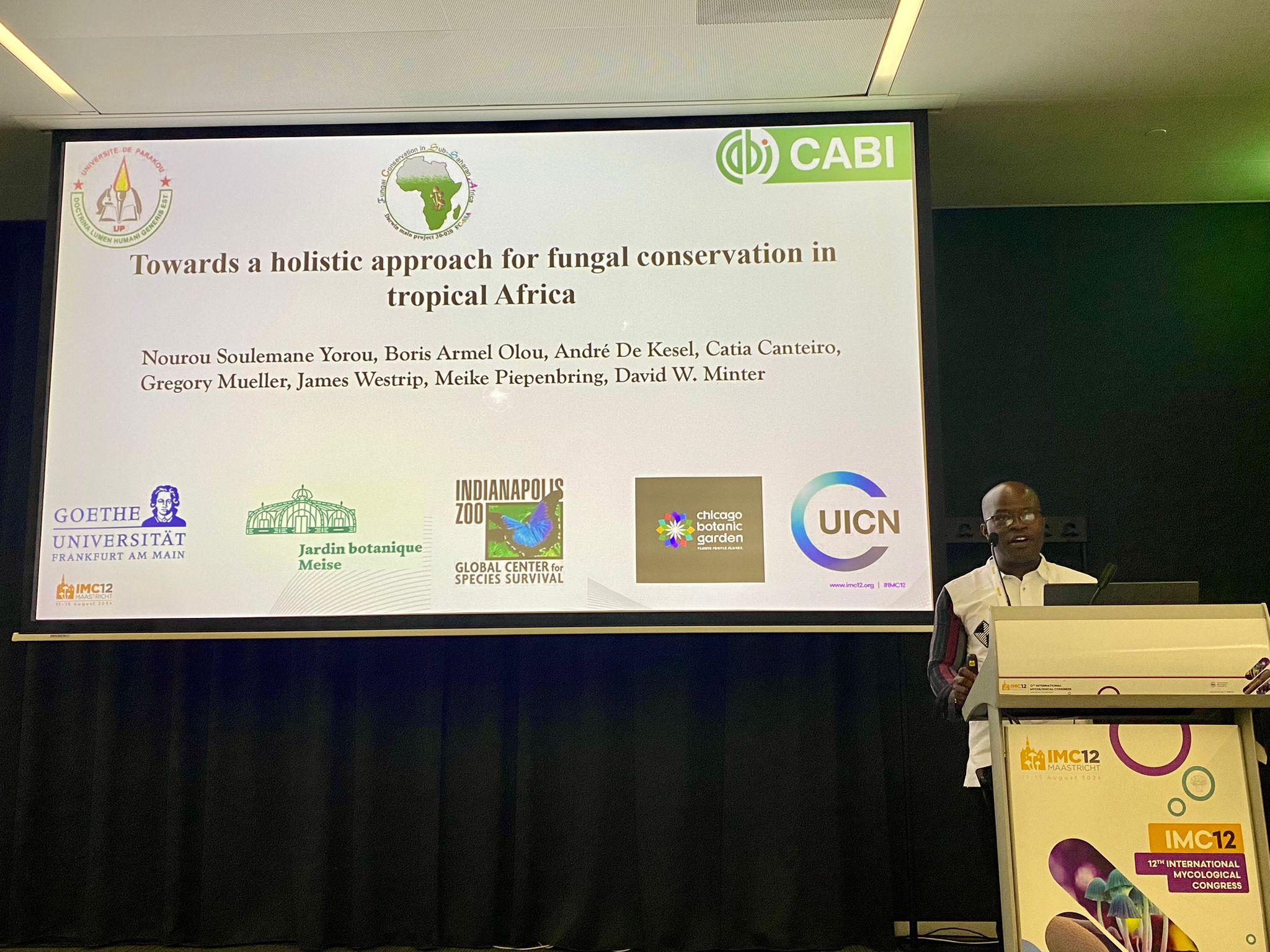
The MyTIPS research group from the University of Parakou, Benin, made a strong impression at the 12th International Mycology Congress (IMC12) in Maastricht, held from August 11-15, 2024. Represented by researchers including PhD candidate Affoussatou Tabé, Dr. Boris Armel Olou, and Prof. Nourou Soulemane Yorou, the group excelled, particularly during a special session on African Mycology. With eight oral presentations and two posters, their work on pathogenic and mycorrhizal fungi was recognized as a model of collaboration and innovation, significantly enhancing Benin’s global standing in tropical mycology.
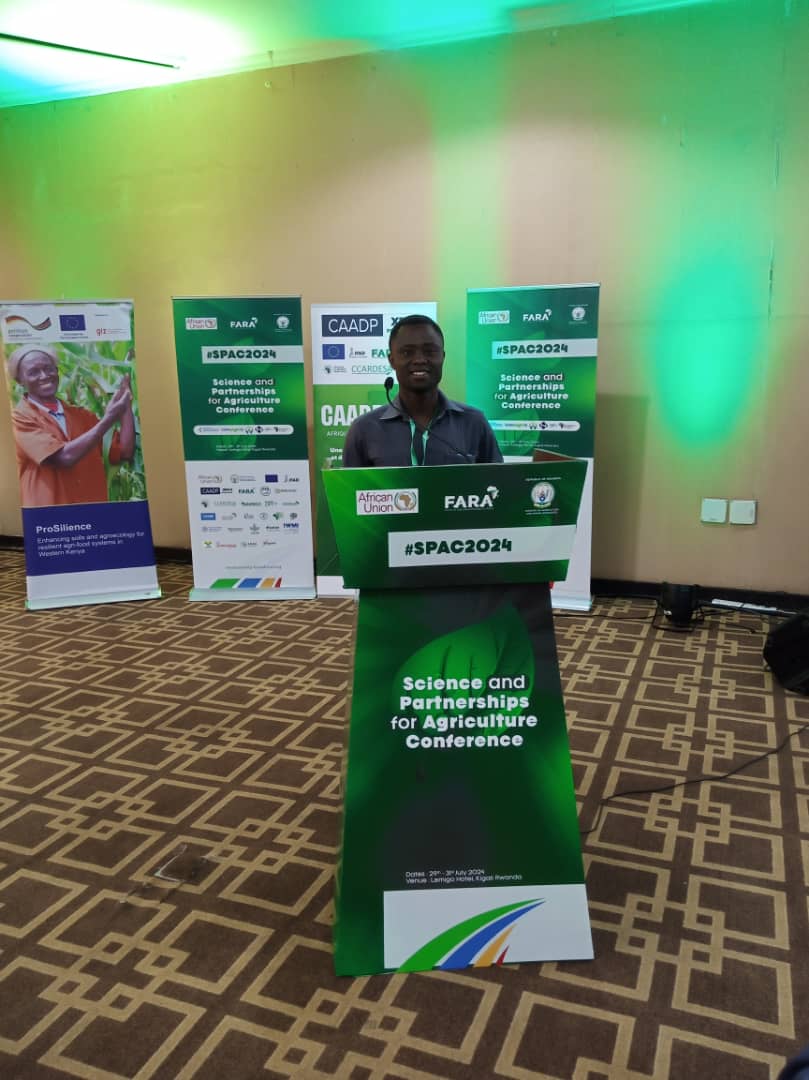
Wilfrid Adjimoti, a member of the FC-SSA project, participated in the « Science Partnership for Agriculture 2024 » conference held from July 29 to 31 in Kigali. During this event, he delivered a presentation entitled « Exploring women’s land access challenges, and the importance of secure tenure for economic and social empowerment. » In his presentation, he highlighted the FC-SSA project’s initiatives as a promising solution to address women’s land access issues and emphasized the socio-economic benefits of the project. He also took the opportunity to distribute project flyers to some participants. The FC-SSA project continues to gain visibility worldwide.
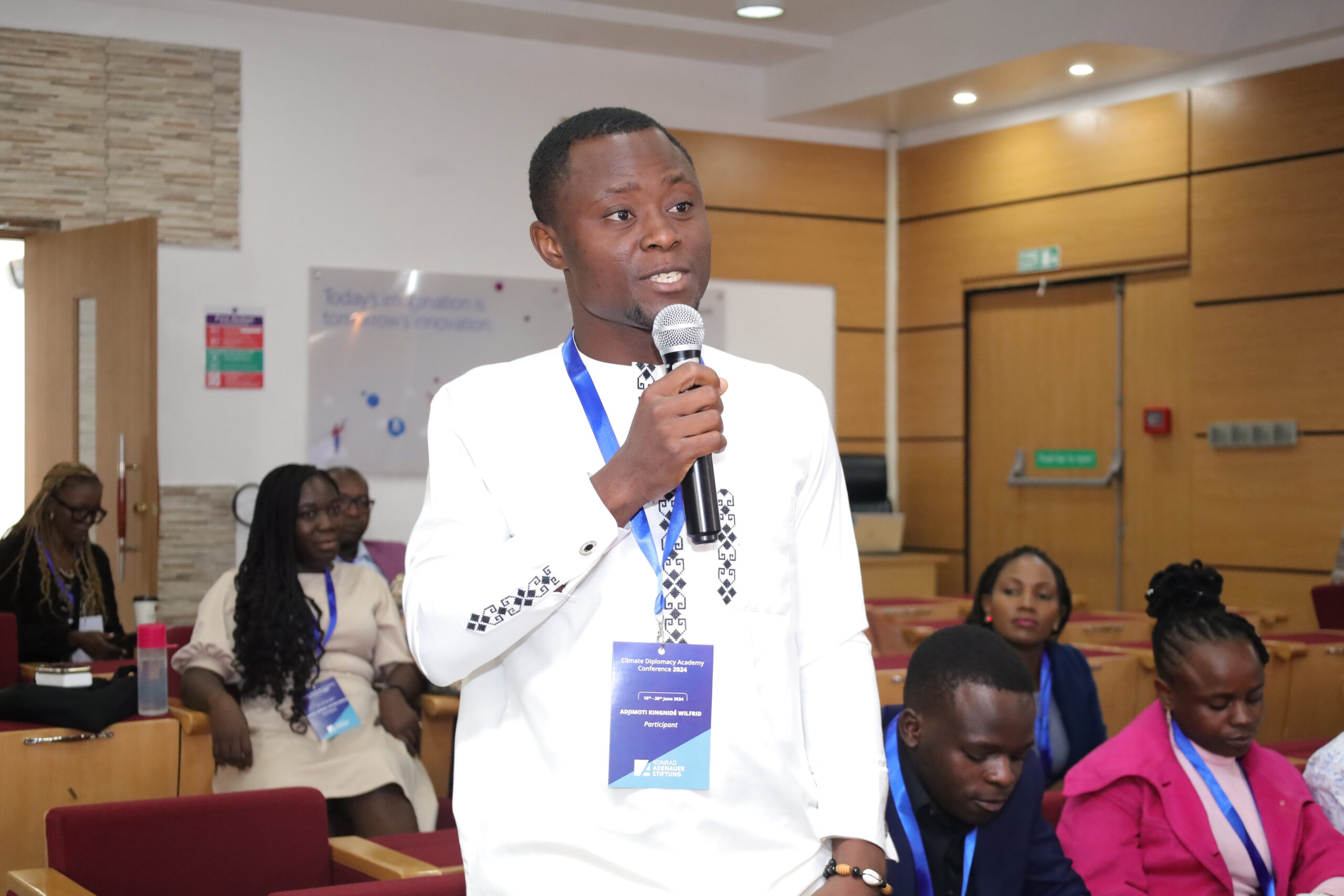
Wilfrid Adjimoti from the FC-SSA project participated in the « Climate Diplomacy Academy 2024 » in Kenya from June 17 to 21, focusing on climate change and natural resources. This event provided him the platform to share various initiatives by the FC-SSA Project aimed at conserving fungal diversity in Sub-Saharan Africa. Over the five-day conference, he also raised awareness about the crucial role fungi play in biodiversity preservation, emphasizing their significance to fellow participants.
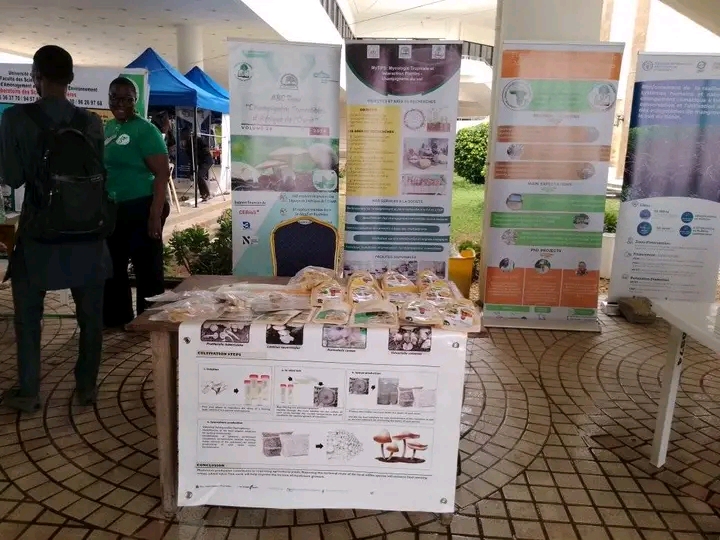
Exhibition of biological specimens as part of the National Week of Biodiversity. Unfortunately, fungi are missing in the collection of National Forest Office. But fortunately, MyTIPS is present to showcase fungi and to bring their voice at the table.
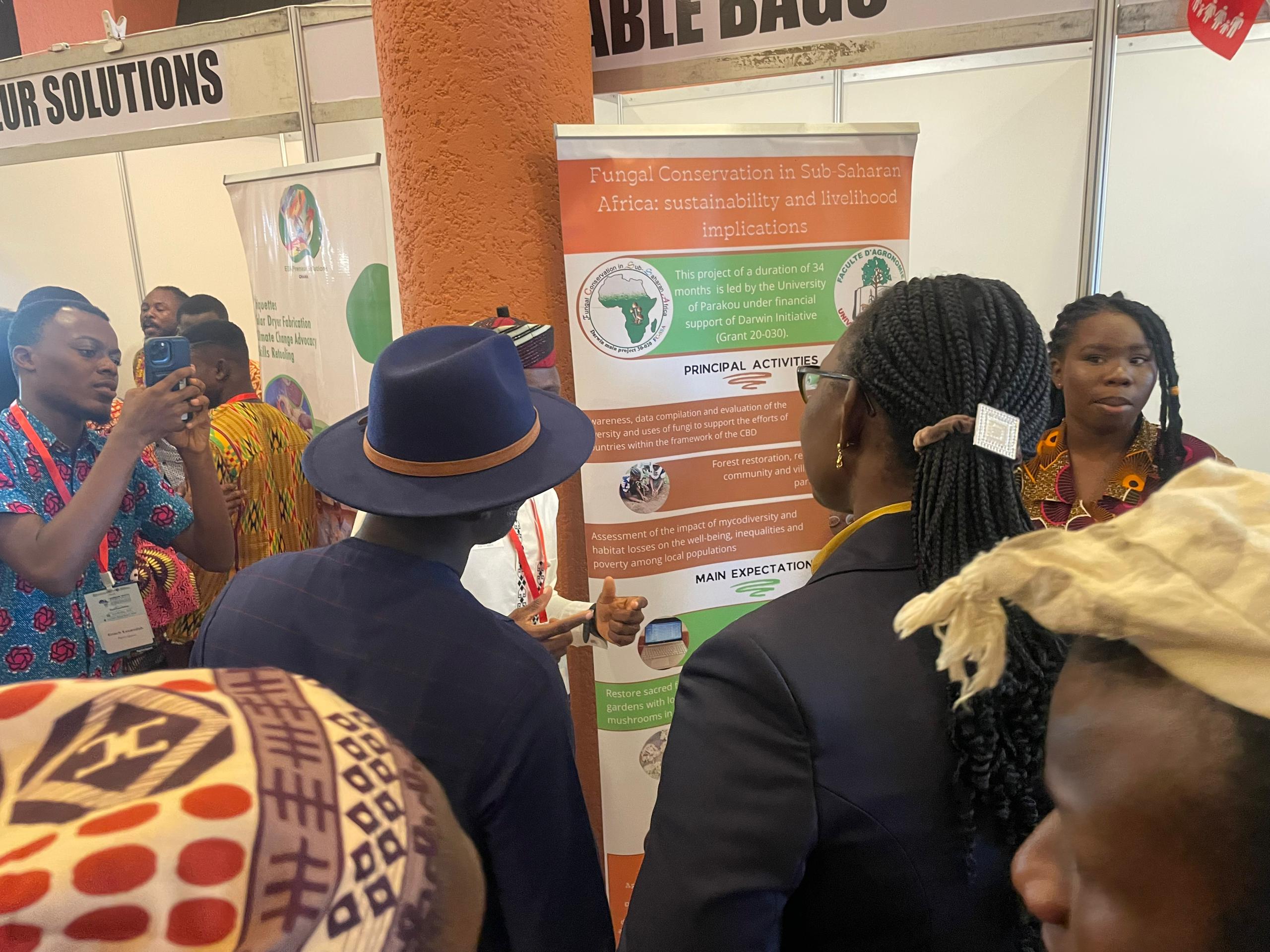
From May 2-4, 2024, FC-SSA project team member Wilfrid Adjimoti participated in the African Youth Conference on Natural Resources and Environmental Governance in Accra, Ghana. This event brought together young people passionate about natural resource governance and environmental protection, from countries such as Ivory Coast, Benin, Ethiopia, Uganda, Kenya, Zimbabwe, Nigeria, Senegal, Mali, Burkina Faso, Niger, South Africa and Sierra Leone. Mr. Adjimoti took this opportunity to promote the FC-SSA project to participants. A kakemono presenting the project was on display, allowing visitors to discover the objectives and achievements of this initiative aimed at preserving and restoring forests. Flyers were also distributed, providing detailed information about the project. The FC-SSA project thus continues to gain visibility and build potential partners across the continent.